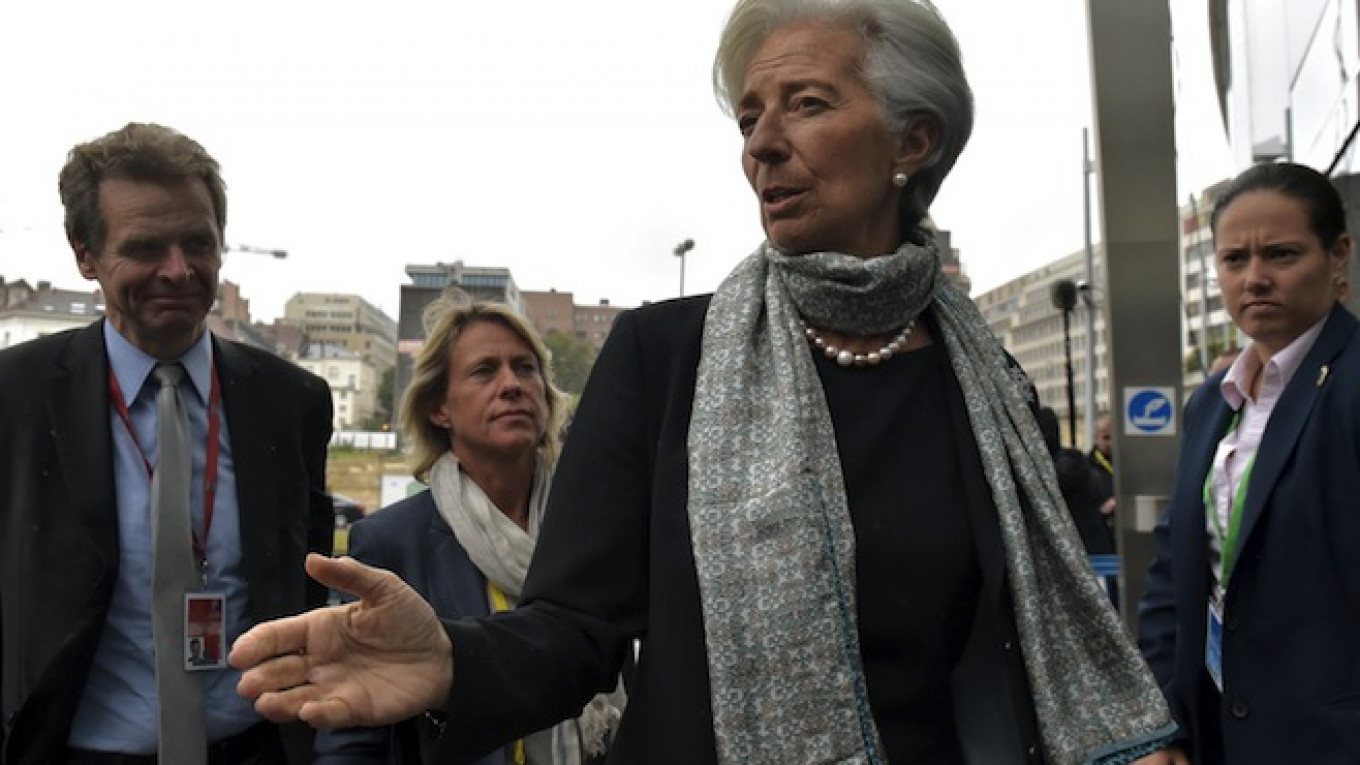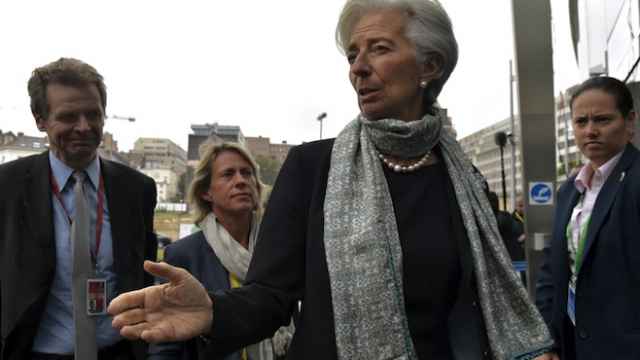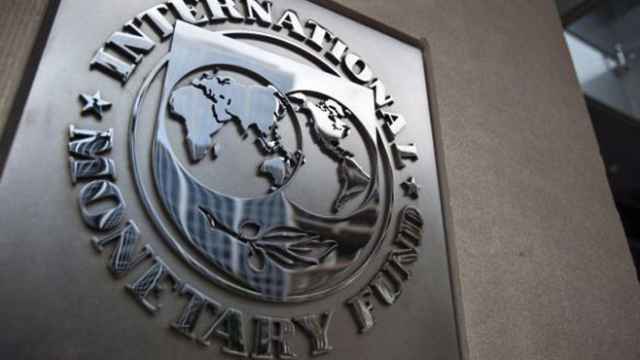Ukraine and a group of its largest creditors will meet on Wednesday for make—or—break talks that look highly unlikely to deliver an amicable deal to restructure $19 billion of debt.
The often bitter negotiations have dragged on for five months, snared on whether the bonds' face value should be written down. Kiev says it will halt debt payments if an agreement is not reached this week.
Without a last-minute compromise, that appears to be the likeliest outcome of the meeting in San Francisco, putting Ukraine on course for a "hard" default. It must pay a $60 million coupon on Aug. 23, and a chunkier $500 million bond maturing on Sept. 23.
Kiev has made clear it will not make the latter payment, saying its IMF-led bailout hinges on plugging a $15 billion funding gap via debt relief. It has also told the International Monetary Fund that it aims to complete the restructuring by end—September.
The question is who blinks first, said one fund manager who holds Ukrainian bonds but is not part of the creditor bloc.
"The card to introduce a moratorium is in the hands of the government. They have continued to pay the coupon, even though they have talked about a moratorium," said the investor. "It is now a game of chicken."
Ukraine has been pushed to the brink of bankruptcy by years of economic mismanagement, corruption and a conflict with pro-Russian separatists. It has embarked on long-advocated reforms, but violence persists despite a ceasefire deal, threatening efforts to improve national finances.
Private creditors will therefore have to accept a 'haircut' of 40 percent of the face value of the debt, later repayments and lower interest payments, Kiev insists.
The creditors have reportedly offered a 5 percent haircut. Hung Tran, executive director of the Institute of International Finance, urged both sides to be flexible.
"Given the high levels of uncertainty on Ukraine's economic and financial prospects, focusing on any one aspect of that and using it to drive the negotiations may not be optimal," Tran said, noting the recent improvements in Ukraine's economy.
The meeting will be led by Ukraine's finance minister Natalia Yaresko and probably also Michael Hasenstab, a star Franklin Templeton fund manager thought to hold over a third of Ukraine's sovereign bonds.
If a deal is achieved, Yaresko will need Kiev's approval.
HOLDOUTS?
Jakob Christensen, senior economist at Exotix, reckons a debt moratorium is possible but he also assigns a 65 percent chance to the government accepting a smaller haircut than it needs — maybe 22.5 percent — because a default now would raise future borrowing costs. Creditors note the IMF envisages Kiev tapping capital markets for $7 billion between 2017 and 2020.
Another potential risk is that of "holdout" creditors who refuse the restructuring deal to chase a bigger payout.
The disbursement of a second IMF loan tranche worth $1.7 billion in July may encourage such holdouts, said Mitu Gulati, law professor at Duke University.
"Templeton etc won't want to agree a deal if the smaller bondholders can hang around and get more money out of Ukraine," Gulati predicted.
A 75 percent majority of holders in each of Ukraine's sovereign bonds must back any deal. The creditor committee, including T Rowe Price, BTG Pactual and TCW, owns $8.9 billion of the $19 billion under discussion and is believed to have a majority in most but not all issues.
So if Wednesday's talks produce an agreement, the creditor committee must persuade other bondholders to achieve the required 'super-majority.'
Bondholders will also want to ensure they do not recover less on their investment than Russia, which is owed $3 billion and has refused to restructure.
"It's impossible to have a deal with majority creditors unless you can assure them that the holdouts will get the same or less," Gulati said. "In this case, you don't just have the usual vultures, you have Russia as well."
A Message from The Moscow Times:
Dear readers,
We are facing unprecedented challenges. Russia's Prosecutor General's Office has designated The Moscow Times as an "undesirable" organization, criminalizing our work and putting our staff at risk of prosecution. This follows our earlier unjust labeling as a "foreign agent."
These actions are direct attempts to silence independent journalism in Russia. The authorities claim our work "discredits the decisions of the Russian leadership." We see things differently: we strive to provide accurate, unbiased reporting on Russia.
We, the journalists of The Moscow Times, refuse to be silenced. But to continue our work, we need your help.
Your support, no matter how small, makes a world of difference. If you can, please support us monthly starting from just $2. It's quick to set up, and every contribution makes a significant impact.
By supporting The Moscow Times, you're defending open, independent journalism in the face of repression. Thank you for standing with us.
Remind me later.






